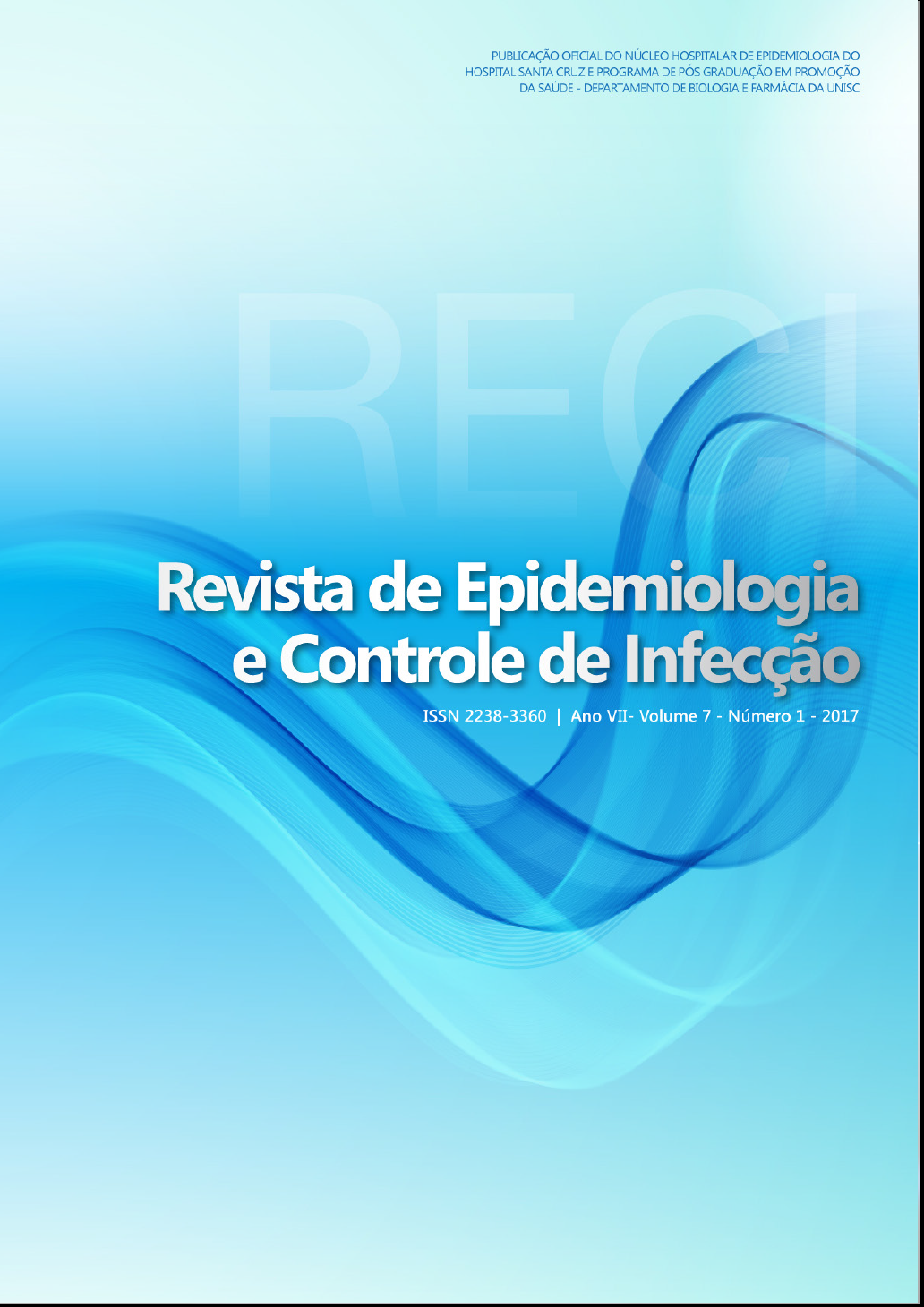Analysis of Occupational Tuberculosis in the Brazilian National Recording System, 2007–2011
DOI:
https://doi.org/10.17058/reci.v7i1.7411Abstract
Background and objectives: Brazil is one of 22 countries with a high burden of the tuberculosis (TB) and is one of the five countries that together comprise 48% of worldwide TB cases. Health care workers (HCW) are among the groups vulnerable to acquiring the infection. However, other occupational groups are at increased risk of TB, particularly miners and workers handling asbestos. Before that, objective of this study was to identify and compare epidemiological characteristics of occupational tuberculosis between HCW and non-HCW. Methods: Cross-sectional study utilizing the Brazilian national surveillance system (SINAN) database. Results: The proportion of TB cases attributable to occupational TB based on data from 2007 to 2011 in Brazil was 1.6%. We analyzed 3,049 subjects, of whom 298 (10%) were TB – HCW and 2,751 (90%) were TB – non-HCW. Among the HCW, were less likely to be male (OR = 0.24 CI 95% 0.18-0.32), to be alcoholism (OR = 0.17, 95% CI 0.05 – 0.54), to be covered under the DOTS program (OR = 0.58, 95% CI 0.43-0.77) and being transferred (OR = 0.34; 95% CI: 0.16-0.70). On the other hand, HCW are more likely to have more than 8 years of schooling (OR = 27.47, 95% CI 16.64 – 45.34), have an age of 43 years or more (OR = 1.96, 95% CI 1.37-2.79) and develop extrapulmonary TB (OR = 1.60, 95% CI 1.12-2.28). Conclusions: The results of our study highlight tuberculosis as an occupational disease, which is important to strengthening the discussions around worker's health and revealing the need for public health measures for prevention and control of TB in N-PS. KEYWORDS: Tuberculosis. Occupational Health. Health Information Systems.Downloads
Downloads
Published
How to Cite
Issue
Section
License
The author must state that the paper is original (has not been published previously), not infringing any copyright or other ownership right involving third parties. Once the paper is submitted, the Journal reserves the right to make normative changes, such as spelling and grammar, in order to maintain the language standard, but respecting the author’s style. The published papers become ownership of RECI, considering that all the opinions expressed by the authors are their responsibility. Because we are an open access journal, we allow free use of articles in educational and scientific applications provided the source is cited under the Creative Commons CC-BY license.


